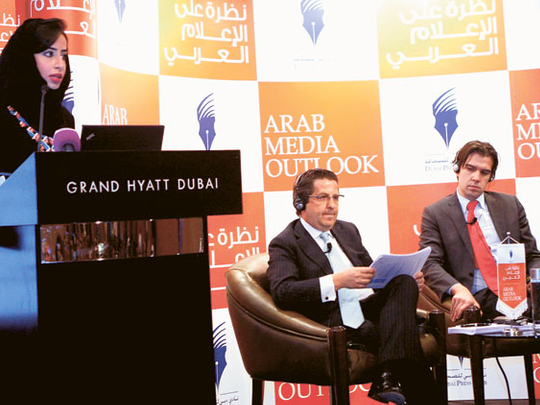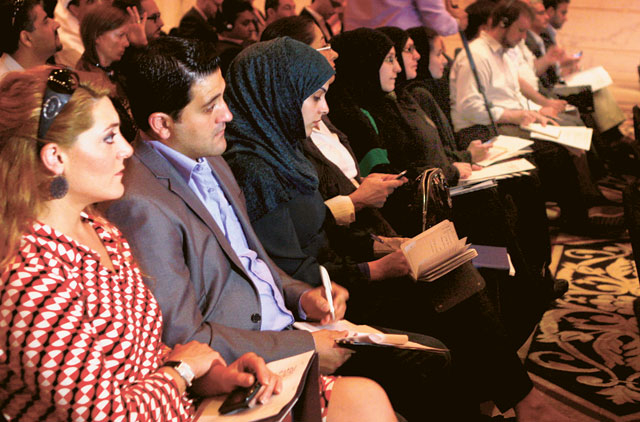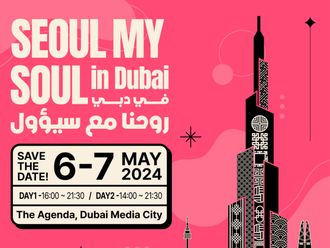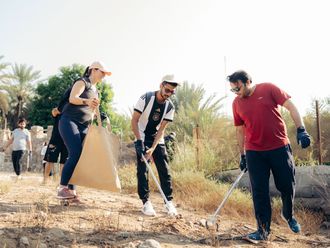
Dubai: Current events in the Arab world are strongly influencing the way people in the region interact with the media and have led them to spend more time following the news and political talk shows, according to the Arab Media Outlook Report (2011-2015) launched on Monday by the Dubai Press Club.
Titled Arab Media: Exposure and Transition, the report highlights the changing media outlook, shifts in consumption patterns and revenue forecasts from the advertising, print copy circulation, online and pay TV segment trends set against a 2015 timeframe.
Recent events in the Arab world have had a relatively positive impact on the regional media, raising the bar in terms of the quality of news reporting, accelerating the engagement with digital platforms and firmly placing the region on the strategic map of global media houses, Mariam Bin Fahd, executive director of Dubai Press Club, said.
"In several markets directly affected by the political uprisings, the structure of the media industry is virtually being overhauled with a significant break from the past. However, the pace of media reform in these markets is likely to be gradual with the pressing economic and political issues being taken up as immediate priorities," Bin Fahd said.
"Our analysis considers the economic and political environment of each of the markets covered in the report, nevertheless there could be potential downside risks given that the media industry in some of these markets is in a rebuilding phase," she added.
Television trend
When it comes to television, the report noted that consumers are increasingly turning to ‘ultra local' content in the aftermath of the regional uprisings, while local content is becoming a strong focus for Pan-Arab broadcasters and there is an increasing trend towards the development of original content for the region.
Imports continue to dominate the Arab TV landscape with Turkish series enjoying immense popularity and the success of local versions of international talent shows such as Arab Idol, and geographic hubs for TV series production expanding across the region, with some of the Gulf states making the most of the recent unrest in traditional markets for content production such as Egypt and Syria.
In the UAE, live political talk show Al Etijah Al Moakes on Al Jazeera claimed top spot while imported programmes such as Arab Idol, Dance India Dance and other programmes including Jeopardy, Comedy Circus, Sada Al Malaeb, fared well
The report also noted that foreign media houses are investing in regional TV content and identifying strategic, underserved niches, while social networking has gained ground as the most common online activity across a few regional markets; and YouTube usage has increased significantly.
With Facebook being used to organise protests and share up-to-the-minute information on revolutionary activities at a local level, usage of the site in the Arab world more than doubled from January to April 2011.
Strong growth in Facebook usage has been prominent in those countries where the revolutions have taken place, while the total number of Facebook users in the Arab world has risen from under 20 million in November 2010 to 36 million in November 2011
More than 140 stakeholders associated with the print, television, online, radio, and cinema platforms, in addition to advertising agencies from across 17 markets in the Arab world, have shared their perspectives in the current AMO report.
The study also expands the geographic coverage of the previous editions to include two new markets, Iraq and Libya, both of which have seen dynamic shifts in the media industry over the past year.













